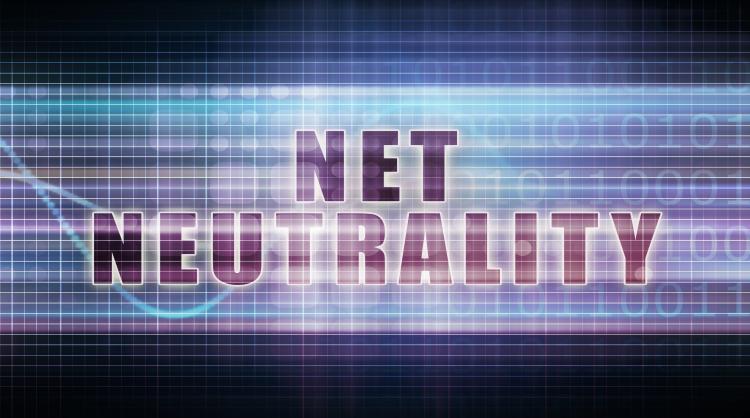Will “Bright-Line” Net Neutrality Rules Be Eliminated?
May 19, 2017 | by Andrew Regitsky

By a 2-1 party line vote yesterday, the FCC voted to approve a Notice of Approved Rulemaking (NPRM) that will substantially remake regulations for the Internet. Although in theory the Commission has an open mind when it begins a new proceeding, in this Docket (17-108) it is no secret that the two Republican Commissioners plan on using their majority to reclassify broadband Internet access as a Title I information service and do away with the vague rule providing it with authority to regulate all ISP future Internet behavior.
To the public, however, the most important part of this proceeding is how will the Commission regulate the so-called “bright line” net neutrality rules forbidding blocking, throttling or paid prioritization of Internet traffic? From what we know so far, fans of the bright line rules have a reason to be concerned.
In the draft NPRM text, (the final text has not yet been released) the Commission requests industry comments regarding the future of these rules. It starts by asking if they are necessary at all:
At the outset of our review of the Commission’s existing rules, we seek comment on whether ex ante regulatory intervention in the market is necessary in the broadband context. Beyond the few, scattered anecdotes cited by the Title II Order, have there been additional, concrete incidents that threaten the four Internet Freedoms sufficient to warrant adopting across-the-board rules? (NPRM, para. 77).
Most ominously for net neutrality supporters, the Commission then ponders whether it would be sufficient for ISPs to simply agree to follow the bright line rules without any regulatory backstop! For example, in its discussion of the no-blocking rule, the Commission notes:
For example, prior to 2015, many large Internet service providers voluntarily abided by the 2010 no-blocking rule in the absence of a regulatory obligation to do so. Do we have reason to think providers would behave differently today if the Commission were to eliminate the no-blocking rule? Is the no-blocking rule is necessary for or burdensome on smaller providers? (Id. at 79).
In 2015 the FCC decided to apply the bright line rules to both fixed and mobile broadband Internet access service providers. The new Commission asks if mobile competition is so great, no rules are needed.
The Title II Order applied the Internet openness rules equally to both fixed and mobile broadband Internet access services. This approach departed from the Open Internet Order’s framework, which adopted a different no-blocking standard for mobile broadband Internet access service and excluded mobile from the no unreasonable discrimination rule. Are there legal, technical, economic, and/or policy reasons to distinguish mobile and fixed broadband with respect to rules in this context, and if so how should we differentiate the two in any rules that we keep or modify? For instance, several mobile providers who opposed application of the broader rules in 2015 argued that additional rules were unnecessary because competition for mobile broadband service adequately restrained the behavior of mobile Internet service providers. We seek comment on whether this contention is correct in today’s marketplace. (Id. at 94).
Finally, and possibly most importantly, the Commission asks the industry how these bright line rules if they continue to exist, should be enforced. Under the current regulations parties that contend ISPs have violated the bright line rules can file a formal complaint with the Commission under section 208 of the Telecommunications Act. The Commission wonders what rights aggrieved parties should have in the future:
What have been the benefits and drawbacks of the complaint procedures instituted in 2010 and 2015? Since these rules were formally codified in 2010, no formal complaints have been filed under them. Can we infer that parties heeded the Commission’s encouragement to “resolve disputes through informal discussions and private negotiations” without Commission involvement, except through the informal complaint process? Does the lack of formal complaints indicate that dedicated, formal enforcement procedures are unwarranted? If we restore broadband Internet access service’s classification as an information service, should that alter our complaint and enforcement process in this context? Id., at 97).
If the Commission reclassifies broadband Internet access as information service it loses the direct authority to regulate ISPs since they would no longer be common carriers. To maintain authority over the bright line rules the Commission will have to assert ancillary control. It almost surely will do so through section 706 of the Act which authorizes it to take actions that facilitate the development and availability of advanced services to Americans. Ironically, section 706 was the proposed legal justification for Tom Wheeler’s 2015 Open Internet Order before President Obama recommended reclassification and the Chairman quickly rejected using section 706. Using this section as legal justification has a good chance of being accepted by the DC Circuit since when that Court rejected the 2010 Internet Order, it pointed toward 706 as a lawful way for the FCC to assert ancillary control.
Of course, we are only at the beginning of the new fight over net neutrality. It will be a bitter drawn out affair that will involve parties spending millions of dollars fighting over billions of dollars. Keep in mind that the current battle could be short-circuited if the Supreme Court decides to hear the appeal of the 2015 Open Internet Order. If that happens, ISPs will cheer, especially if President Trump gets the chance to nominate another conservative justice.

